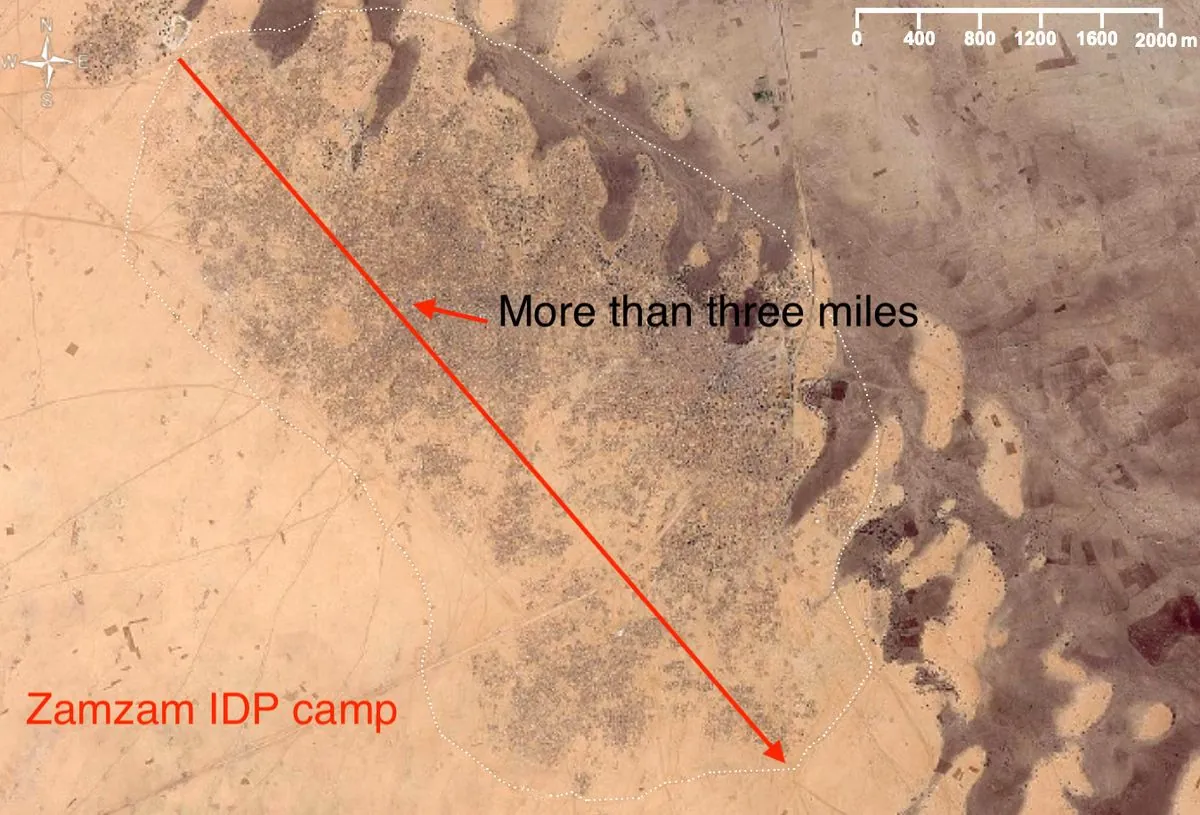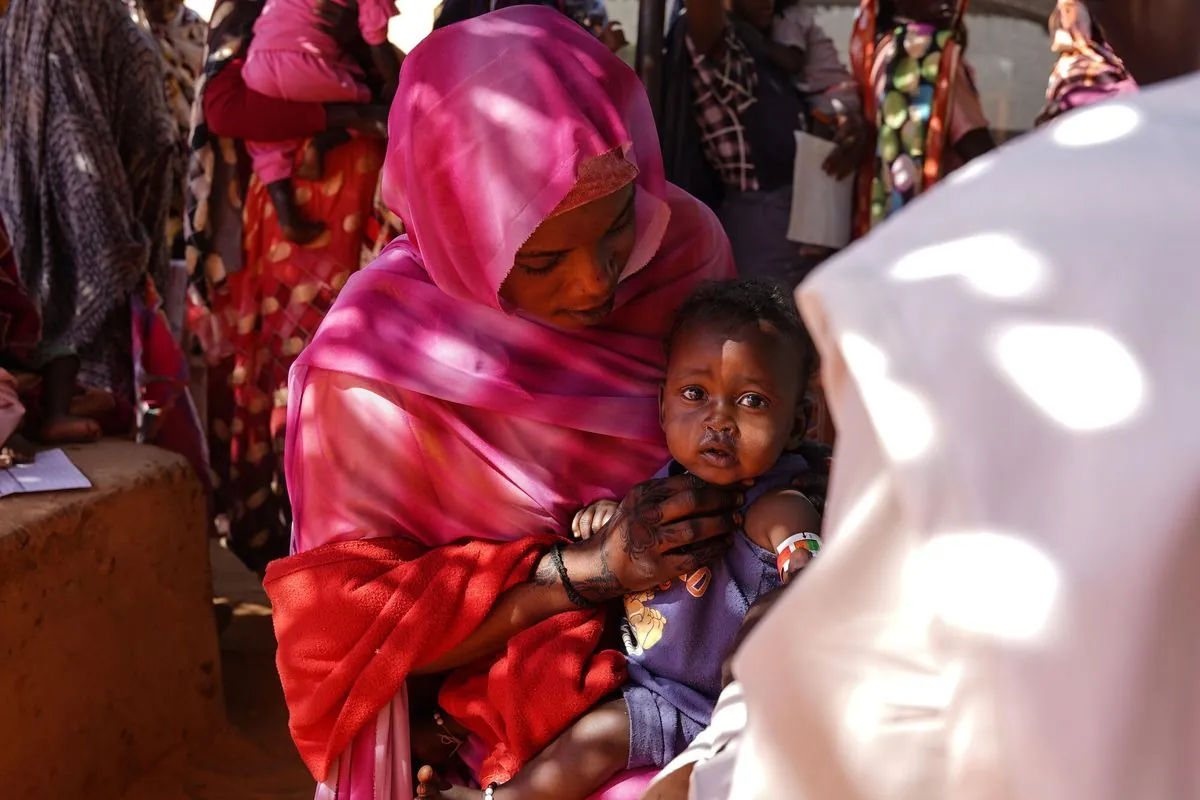Famine Strikes Sudan's Zamzam Camp Amid Ongoing Conflict
Experts declare famine in North Darfur's Zamzam camp, marking the third such classification in 20 years. Conflict and aid restrictions threaten millions in Sudan, with fears of wider spread.

In a concerning development, food security experts have declared a famine in Sudan's Zamzam camp, located in North Darfur. This marks only the third famine classification since the Integrated Food Security Phase Classification (IPC) system was established two decades ago.
The ongoing conflict between Sudan's army and the Rapid Support Forces (RSF) has led to severe humanitarian consequences. Approximately 25 million people, half of Sudan's population, are in urgent need of aid. The situation is particularly dire in Zamzam camp, home to 500,000 internally displaced persons (IDPs).

The primary factors contributing to the famine are the ongoing conflict and restricted humanitarian access. The RSF has besieged the area near al-Fashir, North Darfur's capital, preventing aid from reaching Zamzam camp for months.
Experts warn that similar conditions may be affecting other areas in Darfur, including the Abu Shouk and Al Salam IDP camps. The situation is exacerbated by Sudan's lean season, which typically occurs between May and September when food availability is at its lowest.
Satellite imagery analysis has revealed rapidly expanding cemeteries in Darfur, providing indirect evidence of increasing mortality rates. In Zamzam camp, data from Médecins Sans Frontières in January 2024 showed acute malnutrition rates exceeding the IPC famine threshold, with a mortality rate of 1.9 deaths per 10,000 people daily.
The conflict has not only caused a humanitarian crisis but also disrupted Sudan's agricultural sector, which employs about 80% of the workforce. Climate change-induced desertification has further complicated food security issues in the region.
"I hope this finding will shake people, the power brokers, to respond as they need to. And that means humanitarian access, that means funding at the level that needs to be funded … and it means all due political pressure to end the conflict."
The international community faces challenges in providing aid, as the Sudanese government has prohibited aid deliveries from Chad through the Adre border crossing since February 2024. The alternative Tine crossing is currently inaccessible due to heavy rainfall.
As the situation unfolds, there are calls for a ceasefire and unhindered access to Darfur. The famine declaration could potentially trigger a U.N. Security Council resolution to empower aid agencies to deliver relief across borders to those most in need.


































